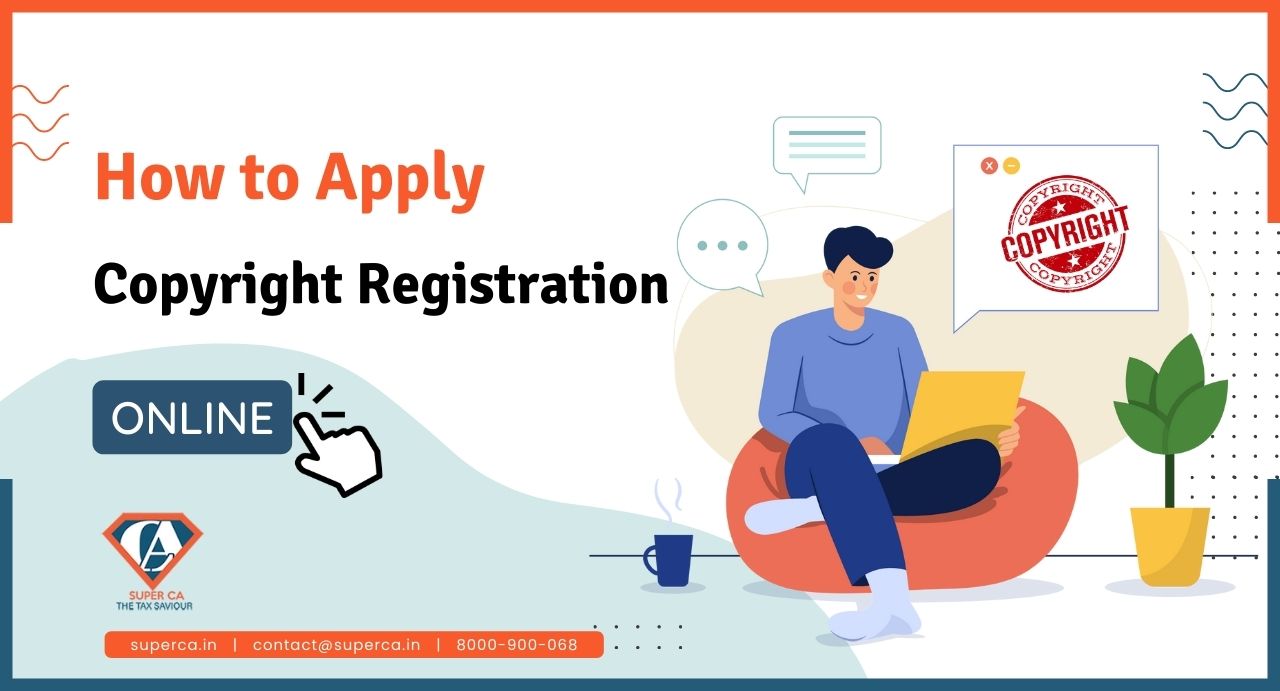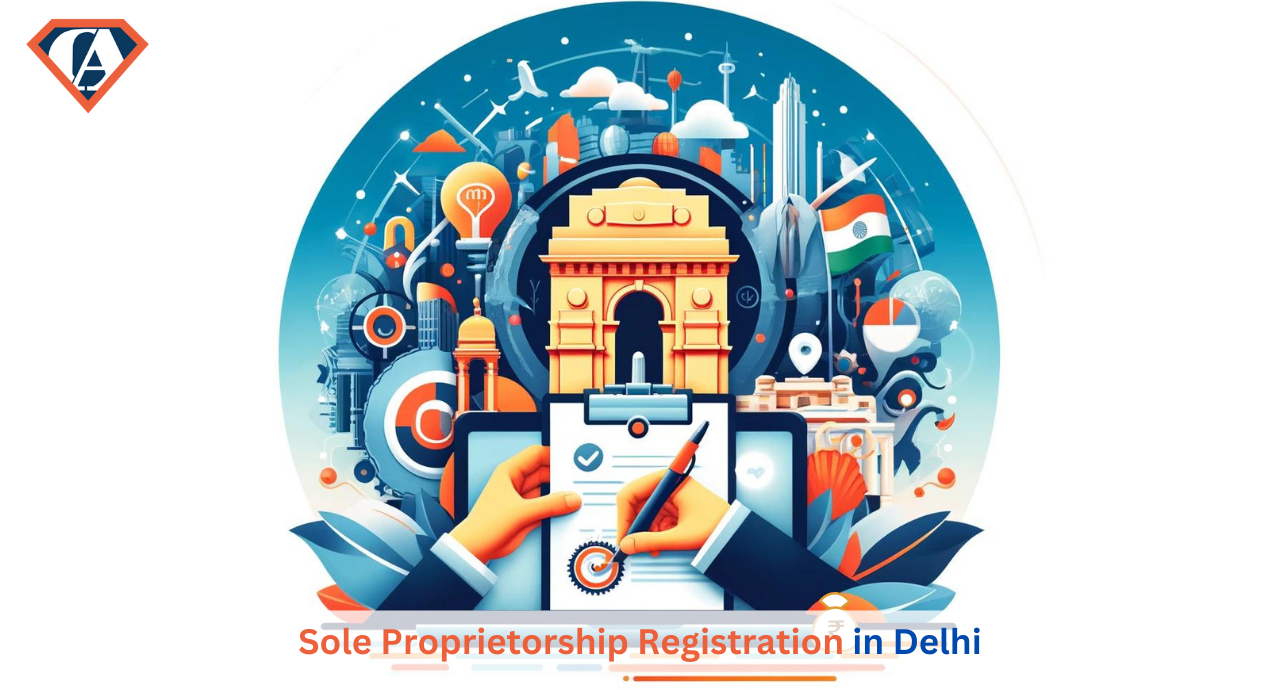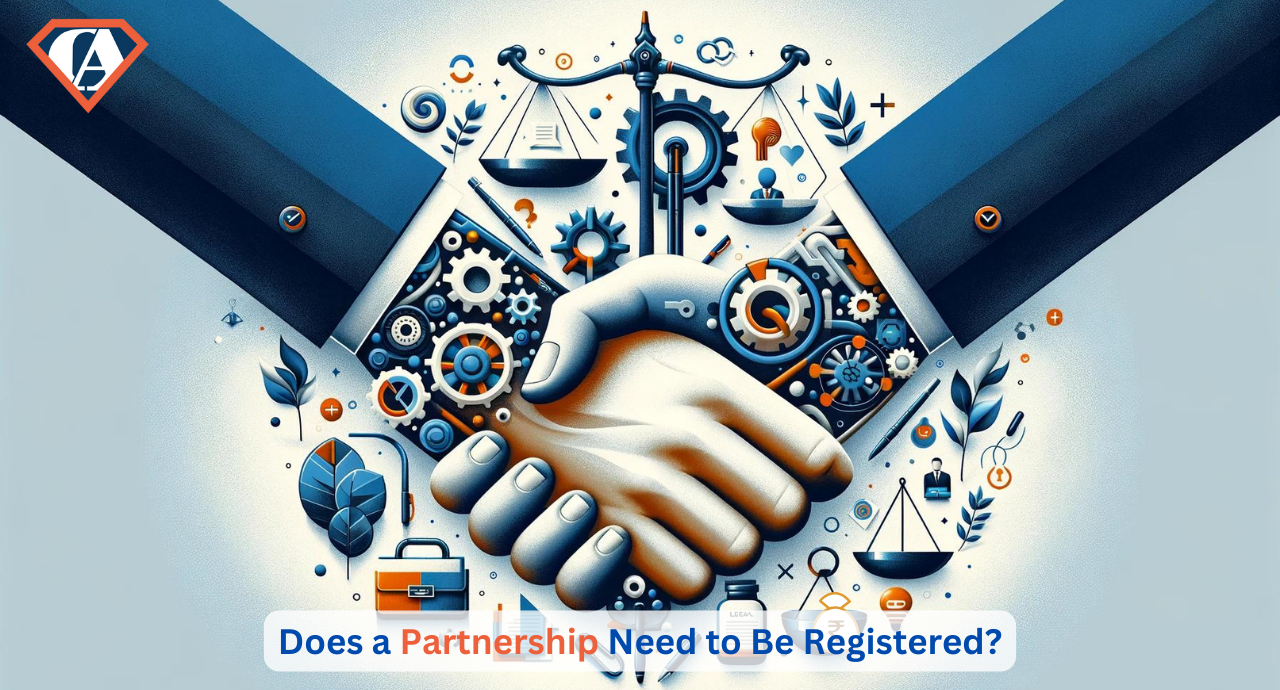How to Apply for Online Copyright Registration?
- Posted By SuperCA
- On 27 September

About Copyright Registration
The Copyright Act of 1957 prevents the unauthorized use of any original literary, musical, dramatic, audio, cinematographic, and other artistic work. Both published and unpublished works can be copyrighted, and the original work’s copyright is reserved for the original creator. Copyright can also be registered for works that were published before 21 January 1958, that is before the Copyright Act came into existence. In this article, we’ll discuss how an individual owner/corporation can go for online copyright registration and safeguard his/her original work.
Definition of Copyright
A copyright is a collection of rights that is provided to someone who creates an original work of authorship like a literary work, song, movie, software, writings, art, architecture, and music. Once you create original work and fix it, like taking a photograph, writing a poem/blog, or recording a new song, you are its sole owner. The copyrights provide you the right to reproduce the work, prepare derivative works, distribute copies, and perform and display the work publicly. Copyright also provides the owner of copyright the right to authorize others to exercise these exclusive rights, subject to certain statutory limitations.
For as long as the copyright is in effect, the copyright owner has the sole right to display, share, perform, or license the material. Further, as per the copyright act, only expressions can be copyrighted, not ideas. For example, content on your website cannot be copied by the competitor however the competitor can use the idea in business activity.
Validity of Registration
Copyright protection of original literary, musical, dramatic, and artistic works lasts for the entire lifetime of the author and another 60 years from the year following the death of the author. For cinematograph films, sound recordings, photographs, posthumous publications, anonymous and pseudonymous publications, works of government, and works of international organizations, the 60 years are counted from the date of publication.
Eligibility
Any person or a business entity can obtain copyright registration. An individual can be an author, creator, musician, photographer, producer, painter, composer, or company who must have created an original work.
Documents Required for Copyright Registration
To register for copyright you need to give us the following details and documents.
Personal details:
→ Name, address, and nationality of the author of the work
→ Nature of the applicant’s interest in the copyright - whether the applicant is the author of the → work or the representative of the author
→ 2 Copies of the original work
→ ID proof of the owner OR incorporation certificate if it is for business
Nature of the work:
→ Class & description of the work
→ Title and Language of the work
→ Date of publication proof
You must take utmost care while uploading documents because in case of any discrepancy or incomplete documents a copyright registration may get rejected.
Process for Online Copyright Registration
An application must be submitted to the Copyrights Authority with the prescribed fees which can be paid either in Demand Draft or through online payment options. The step-by-step process is discussed below.
Step 1 - Visit https://copyright.gov.in
Step 2 - Enter your valid User ID and Password to log in or Click on NewUser Registration, if you have not yet registered.
Step 3- After login, click on to link “Click for online Copyright Registration”
Step 4 - The online “Copyright Registration Form” is to be filled up in four steps
- Complete Form XIV, then press the SAVE button to Save entered details, and press Step 2 to move to the Next Step. The signature of the author must be scanned in 500 KB and kept ready for uploading.
- Fill up the Statement of Particulars, then press the SAVE button to Save entered details, and press Step 3 to move to the Next Step
- Fill up the Statement of Further particulars. This form is applicable for “LITERARY/ DRAMATIC, MUSICAL, ARTISTIC AND SOFTWARE” works, and then press the SAVE button to Save entered details, and press Step 4 to move to the Next Step.
- Make the payment through the Internet Payment gateway.
Step 5- Once this application is filed, a unique diary number is generated and allotted to the Applicant. With the diary number, the Applicant can track the status of the application. Further, within 30 days of filing the Application, the Applicant has to submit the work (which is to be copyrighted) to the authorities.
Step 6 - Once the Application is filed and work is submitted, the application will be sent to the examiner of Copyrights. After examination of the Application, the examiner will either accept the Application or will raise their objections (if any) or might ask for more documents
Once completely satisfied with the copyright claim made by the applicant, the Registrar of Copyrights would enter the details of the copyright into the register of copyrights and issue a certificate of registration.
Benefits of Copyright Registration
➢The copyright protects the original work or creation from being used, duplicated, reproduced, or sold by someone other than the creator or someone authorized by the creator in any mode including online and offline
➢ Discourages Copycats from using similar marks in the first place, thus solving the problem before it even begins.
➢ Helps in preventing others from making unwarranted use of the author’s work. If you come upon that someone is copying the author’s work, he/she can send a `cease’ notice. So, a person does not have to bother about legal proceedings at a later stage which saves a lot of time and money.
➢ A copyright registration makes work known across the world and it becomes searchable in the copyright registry database
➢It gives the copyright holder the reputation that certain work belongs to him. This serves as an asset to the work & safeguards the particular way an author or creator expresses himself.
➢Once your copyright is registered, it becomes much easier to move to court and get the person who illegally copied your work punished. To provide adequate protection to copyright holders, the Copyright Act, of 1957 provides imprisonment from six months to three years and a fine of not less than INR 50,000 in case your right is infringed by someone
Use of Copyrighted Work Without Permission
Section 107 of the Copyright Act (also known as the Fair Use Act) covers the fair use of copyrighted works. According to this section, a Copyright Disclaimer states that interest is generated for “fair use” of ideas such as for criticism/review, in judicial proceedings, news reporting, teaching, scholarship, learning, and research/private study. Further, a copyright disclaimer should be used when the subject matter on the website or application is solely managed and copyrighted by the author/writer.
Conclusion
With the increase in the penetration of the web, digital property rights became an increasingly hot topic everywhere. Copyright Protection prevents the undue proliferation of private products or works and ensures the individual owner retains significant rights over his creation. This protection provided by law encourages creativity and innovation and helps a country grow both in economic as well as cultural terms.
Suggested Read:
- What Is The Difference Between Copyright And Trademark?
- What Is Copyright Disclaimer Under Section 107?





